Hanoi's economy continues to sustain growth
Speaking at the opening session of the 20th meeting of Hanoi People’s Council on December 4, Deputy Chairman of Hanoi People’s Committee Ha Minh Hai reported that the capital’s economy has maintained high growth, with regional GDP rising by 6.12 per cent in the first nine months of the year, and expected to exceed 6.5 per cent for the full year.
“Hanoi has ensured balanced state budget revenue and expenditure while allocating sufficient capital for development investments,” Hai said. “Domestic revenue accounted for $19.25 billion, representing 93.8 per cent of the total, while the local government’s share of revenues under allocation regulations is projected at $5.98 billion, hitting 111.3 per cent of the target and up 34 per cent on-year.”
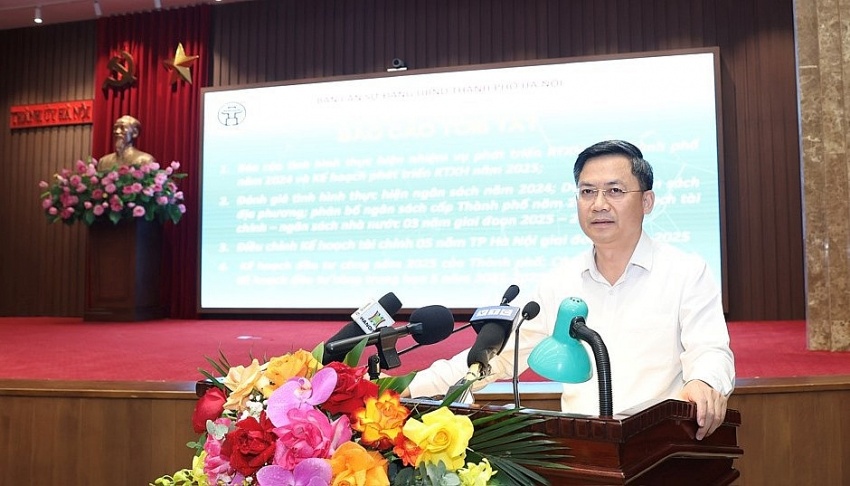 |
| Deputy Chairman of Hanoi People's Committee Ha Minh Hai |
At the conference, the deputy chairman stated that Hanoi has effectively implemented financial and credit policies, promptly addressing the needs for production and business.
The city achieved 23 of its 24 socioeconomic targets for 2024, with the only shortfall being the public transport passenger rate. Hanoi has created over 196,000 jobs this year, reaching 118.9 per cent of the plan. Social welfare initiatives have been prioritised, with over $416.7 million allocated through the Social Policy Bank to support more than 96,000 disadvantaged households.
The city also led the nation in welfare policies, completing housing upgrades for all 714 identified low-income households and allocating $11 million to help Tuyen Quang and Phu Tho provinces eliminate substandard housing.
In addition, the city has intensified anti-corruption and anti-waste measures, conducting a comprehensive review of 712 delayed projects. Hanoi became the first locality in the country to establish a Steering Committee for Waste Prevention, launched on November 20. Administrative reforms and digital transformation, including the implementation of the National Digital Transformation Project, have been critical priorities, focusing on practical, citizen-centred solutions that enhance value for residents and businesses.
Despite these achievements, Hai acknowledged challenges, including uneven capacity among officials, a lack of creativity and professionalism, and inefficiencies in administrative processes. He noted the absence of fully developed inter-agency coordination mechanisms and delayed restructuring of administrative procedures, which remain overly formalistic.
“Looking ahead, Hanoi is determined to meet its socioeconomic development targets for 2025 and the broader 2021-2025 period. The city has established 25 key indicators, including five economic, 14 socio-cultural, and five urban and environmental goals, with a new target to increase social housing availability in 2025,” he added.
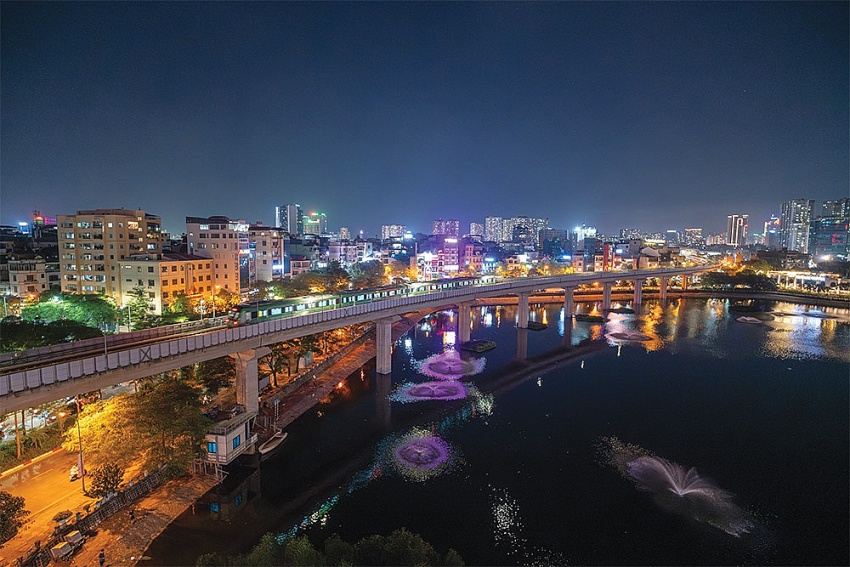 |
Hanoi has outlined three growth scenarios for 2025. Under the baseline scenario, regional GDP is projected to grow by 6.5-7.5 per cent, with per capita regional GDP reaching $7,184-$7,250. In the high-growth scenario, regional GDP could exceed 8 per cent, raising per capita above $7,292.
“To achieve these goals, the city has identified 10 core tasks, focusing on economic development, inflation control, investment attraction, and solving delays in project execution. These efforts will be guided by the strategic objectives in Politburo Resolution 15, the Hanoi Master Plan, and the amended Capital Law,” Hai said.
 | Hanoi's state budget revenue surpasses projections Amidst the global and domestic challenges of 2024, the capital's economy has maintained recovery momentum, exceeding key targets and achieving remarkable progress across multiple sectors. |
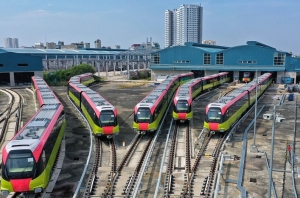 | The Capital Law to help develop Hanoi's railway system The Capital Law, set to take effect in January, permits investment in the development of Hanoi's urban railway system, prioritising the Transit-Oriented Development (TOD) model to ensure modernity, compatibility and sustainability. |
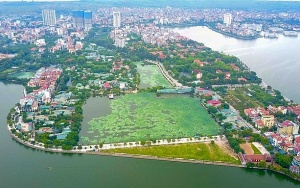 | Hanoi approves detailed planning for Quang An Peninsula Hanoi People's Committee has approved the detailed planning for the central axis of Quang An Peninsula, covering Quang An and Tu Lien wards in Tay Ho district, Hanoi. |
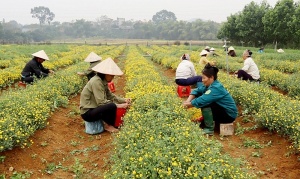 | Hanoi to promote 16 medicinal plant varieties for cultivation Hanoi is advancing the cultivation of 16 key medicinal plant varieties as it aims to boost economic efficiency, preserve rare species, and tap into high-value market opportunities. |
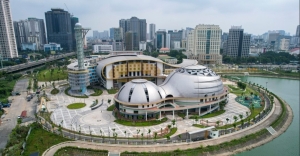 | Hanoi boasts extensive cultural facilities Hanoi boasts one of the most extensive and synchronised systems of cultural institutions in the country, with the full support of the community. |
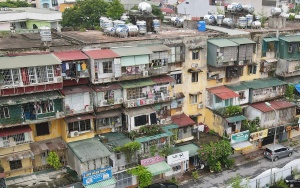 | Hanoi to speed up renovation efforts for old apartments Hanoi People's Committee is focussed on speeding up the renovation of old apartments and the construction of resettlement housing to improve people’s lives, according to Duong Duc Tuan, Deputy Chairman of Hanoi People's Committee and deputy head of the Steering Committee for the renovation of old apartment buildings in Hanoi. |
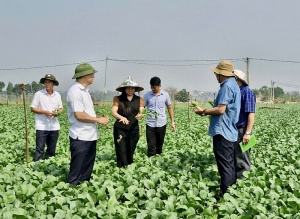 | Hanoi prepares for Lunar New Year with strong agricultural supply chain With the Lunar New Year (Tet) 2025 just over two months away, Hanoi is gearing up to meet the expected surge in demand for agricultural products and food. |
 | Hanoi seeks to transform urban agriculture Hanoi is enhancing its urban agriculture with high-tech and ecological farming models, with efforts directed towards concentrated production areas and planning challenges for sustainable growth. |
What the stars mean:
★ Poor ★ ★ Promising ★★★ Good ★★★★ Very good ★★★★★ Exceptional
Related Contents
Latest News
More News
- Masan Consumer names new deputy CEO to drive foods and beverages growth (February 23, 2026 | 20:52)
- Myriad risks ahead, but ones Vietnam can confront (February 20, 2026 | 15:02)
- Vietnam making the leap into AI and semiconductors (February 20, 2026 | 09:37)
- Funding must be activated for semiconductor success (February 20, 2026 | 09:20)
- Resilience as new benchmark for smarter infrastructure (February 19, 2026 | 20:35)
- A golden time to shine within ASEAN (February 19, 2026 | 20:22)
- Vietnam’s pivotal year for advancing sustainability (February 19, 2026 | 08:44)
- Strengthening the core role of industry and trade (February 19, 2026 | 08:35)
- Future orientations for healthcare improvements (February 19, 2026 | 08:29)
- Infrastructure orientations suitable for a new chapter (February 19, 2026 | 08:15)

 Tag:
Tag:



















 Mobile Version
Mobile Version